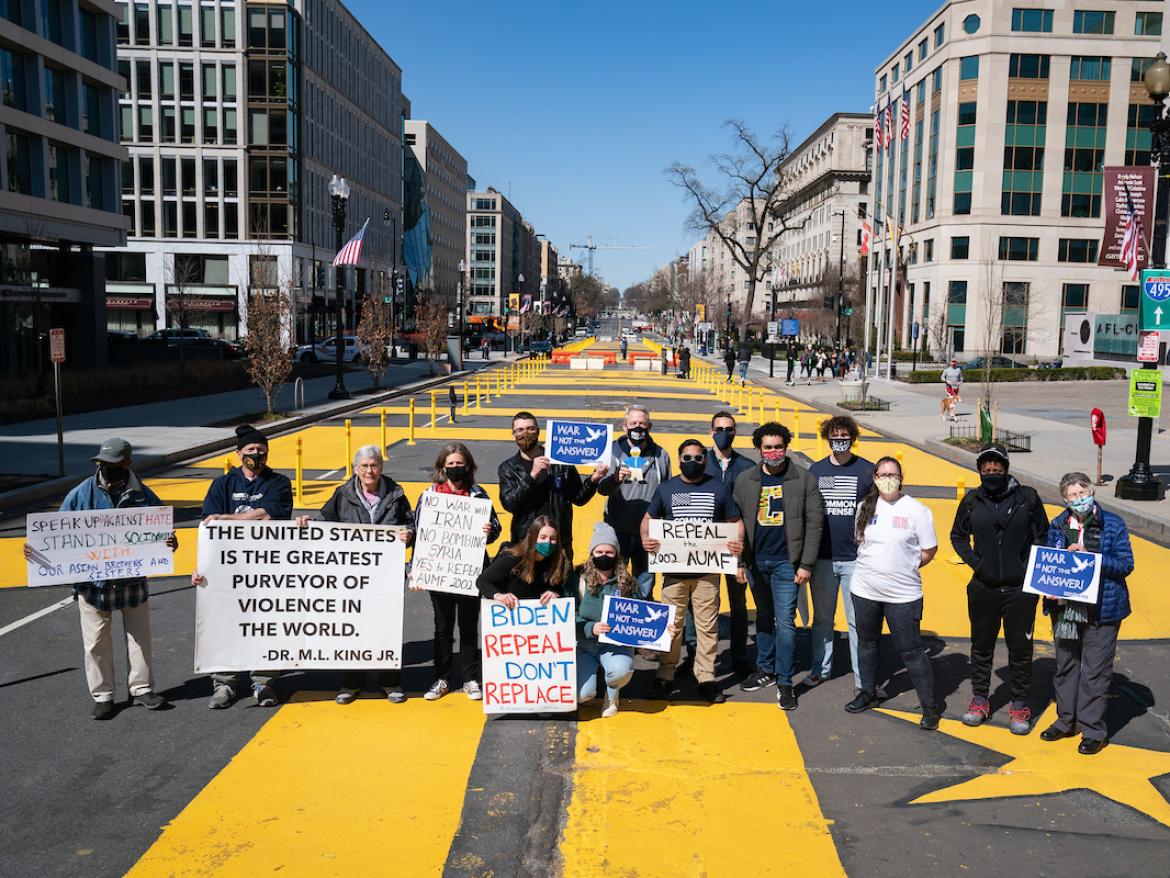Persistent. Prophetic. Powerful. Those qualities describe our Quaker network well, and we can add a fourth “P”: Productive. Today’s vote in the House to repeal the 2002 law that authorized war against Saddam Hussein’s regime in Iraq shows that a small group of determined advocates with the moral high ground can make a big difference.
The bipartisan vote of 268-161 wasn’t the first time the House has voted to wipe this open-ended authorization off the books. In 2020 the House voted 236-166 to repeal the 2002 Iraq war authorization as part of a measure to prevent unauthorized war against Iran, and in 2019 it voted 242-180 to do the same as part of the National Defense Authorization Act.
A small group of determined advocates with the moral high ground can make a big difference.
But neither of those provisions made it to the president’s desk. This is the first time the full House has voted on a freestanding measure to terminate a post-9/11 war. And it’s unlikely that the vote would have happened without the influence of FCNL’s activists across the country.
Rep. Barbara Lee (CA-13) is the author of the bill that the House passed today, and she’s the only member of Congress to have voted against the initial Authorization for Use of Military Force (AUMF), passed in 2001 after the Sept. 11 attacks. We’re proud of her for taking that deeply courageous stand, and for repeatedly introducing legislation to end the wars that followed.
While there has been much debate and little congressional action on repealing the 2001 AUMF, which has become a blank check for endless war, comparatively little attention has been paid to the 2002 Iraq AUMF. Until recently, administrations, legal scholars, and advocacy groups had largely ignored it.
That all changed when Heather Brandon-Smith, FCNL’s legislative director for militarism and human rights, saw an opening for progress and charted a strategy to take advantage of it. She reasoned that since the 2002 Iraq AUMF wasn’t being used as the sole justification for any current operations, but remained susceptible to abuse, it might be easier to convince Congress to bid it farewell. Repealing the 2002 Iraq AUMF would not stop any ongoing wars but it could certainly prevent some new ones.
With the dedicated efforts of FCNL’s roughly 125 Advocacy Teams in 44 states, more and more members of Congress began coming around.
Rep. Lee was pleased to have the power of FCNL’s network behind her bill to repeal the 2002 Iraq AUMF. Hundreds of Friends and supporters took the message to Capitol Hill during the 2019 Annual Meeting and Quaker Public Policy Institute, and thousands more called, wrote, and emailed their elected representatives.
But it took a lot more work than anyone imagined. Some in the advocacy community didn’t like the incremental approach and wanted to focus on the 2001 AUMF instead. Many in Congress didn’t understand the difference between the two authorizations, and continued to insist, incorrectly, that the Iraq war authorization was needed to continue fighting ISIS and al Qaeda. There were internal divisions within several administrations between policymakers who saw no harm in repealing it and lawyers who wanted to keep it on the books “just in case”.
With the dedicated efforts of FCNL’s roughly 125 Advocacy Teams in 44 states, who meet regularly with their elected representatives to build relationships of trust and to lobby persistently on this issue, more and more members of Congress began coming around. They were moved not only by the clear reasoning of their constituents, but also by their passion and their moral authority. We have heard numerous stories of representatives and senators who were initially hostile to repeal of the 2002 Iraq AUMF becoming supporters after meeting with our teams.
In Washington, our lobbyists took a fully bipartisan approach by working with partners that are considered conservative or libertarian, including Concerned Veterans for America, FreedomWorks, Defense Priorities and the Charles Koch Institute. We led transpartisan letters and circulated an issue brief from the Heritage Foundation that supported our position. We created backgrounders and explainers and made our case in the media. Several members of Congress who rarely agree with FCNL on anything supported our position on this.
All this work culminated in the successful vote this week. But our work is not over: we are still a few votes short of the 60 that are needed in the Senate.
The Senate Foreign Relations Committee is planning to vote on a similar bill next week, and Majority Leader Schumer has pledged that the full Senate will vote this year on repealing the 2002 Iraq AUMF. We never would have come this far without your help, and you’ll be hearing from us every step of the way to final victory!



